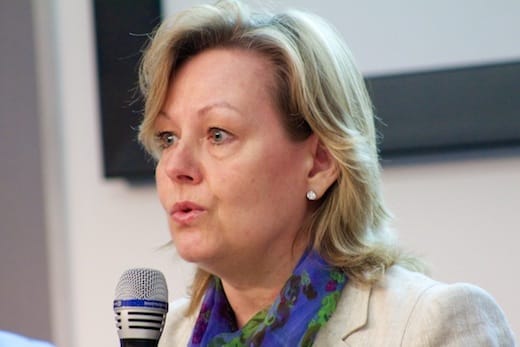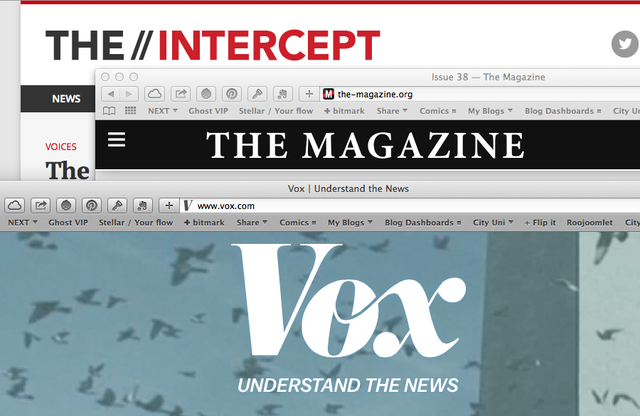
New business models for journalism
Journalism needs a new business model. Hell, it need many new models. Here's a bunch of them from news:rewired
The last few months have reminded us that even digital pure-play busineses have a money problem. The March 2019 edition of news:rewired brought together a panel of people all working on new business models to make journalism pay. o
(Warning: liveblogging. Prone to error, inaccuracy and howling crimes against syntax. Post will be polished up over the next 24 hours)
Panel
- Jessica Best, The Correspondent
- Dominic Young, Agate
- Mark Little, Kinzen
- Des Martin, Brave Software
- Moderator: Sue Llewellyn
Jessica Best
The Correspondent

De Correspondent is a member-funded collaborative journalism site, with 60,000 members, and 52 full-time staff. They sell books, and have about 2m reach. The vast majority of their revenue is reader-generated.
The difference between subscribers and members is that subscribers pay for a product, members join a cause.
Could this model work in the US? They crowd-funded the first year, seeking $2.5m back in November. They raised $2.6m in 30 days from 45,888 members from 130 countries. Why crowdfund? They already had $1.8m - but no community. The crowdfunding didn't just bring the money, it brought over 45,000 people who believe in the product. In the long-term, they want memberships, though.
Why "choose what you pay" for the funding? Trust, inclusivity and solidarity with the members. You can get a more diverse range of people.
Key success factors
- One year of intensive preparation
- Clear value proposition and deadline
- Existing Dutch member base (over 10,000 of them chipped in)
- High quality UX
- 100+ public ambassadors to communicate the message to their networks
- email email email
- High profile media appearances (especially Jay Rosen on the Daily Show - they worked on that for a year)
…and they're hiring!
Dominic Young
Agate
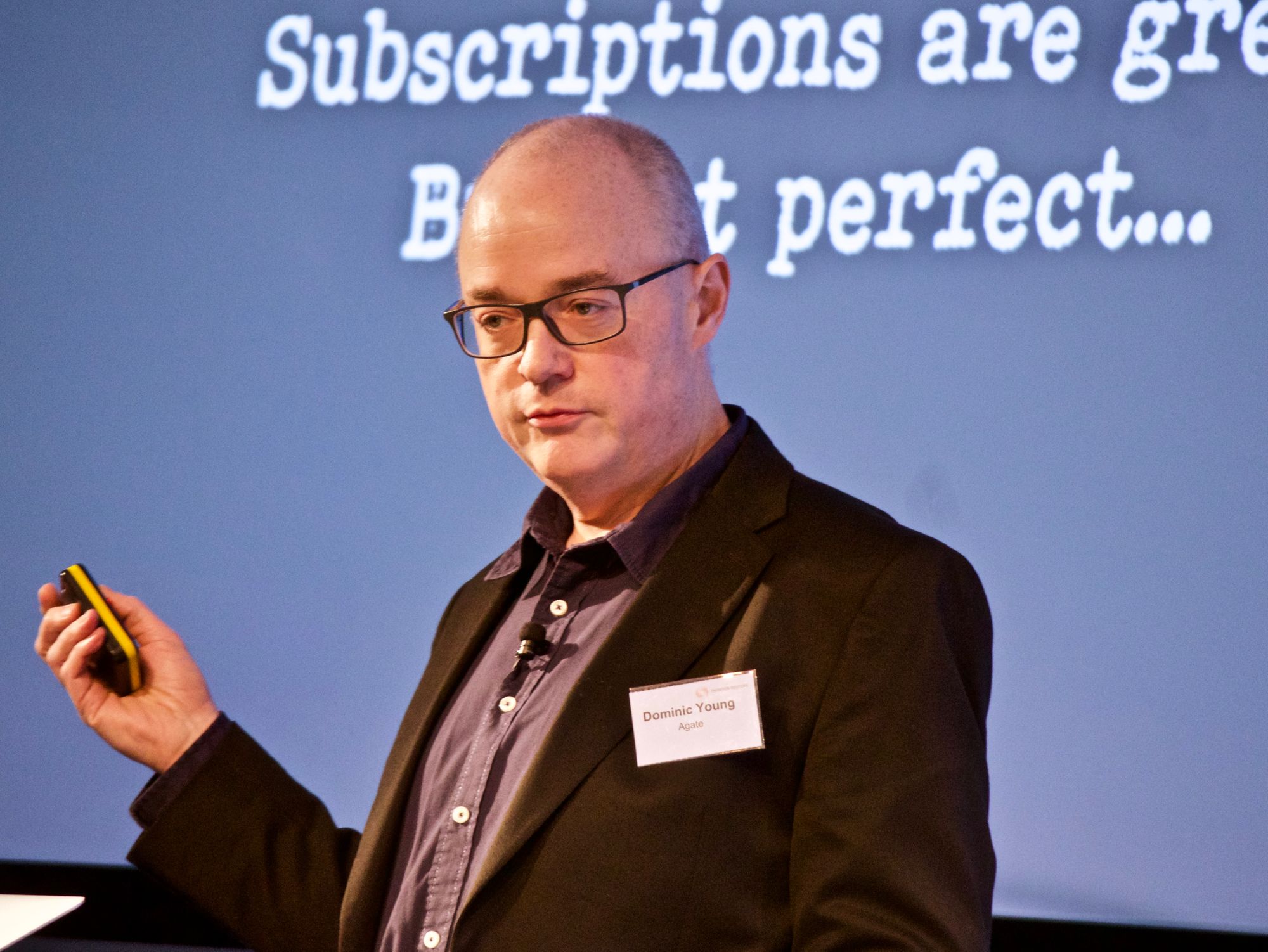
How do you reconnect your readers to your revenue? It's no longer controversial that you need reader revenue - but subscriptions aren't everything. To reach others, you need:
- The right price: pence not pounds, not open-ended and effortless.
- The right product: habit forming, clear and consistent, focused on readers
- Zero commitment: no self-spending money, no promises, no lock-outs
In other words, delightful habit-forming products. That's not content. You make products out of content.
Oh, and you need a network. Popularity pays for any publisher - at the price they set. News media has never had a homogenous price point, like music did, for example. Don't limit the value of the user - they're not necessarily worth a fixed amount. Publishers are the apex value creators.
So, what did they build? No a platform like the big social ones. No an aggregator, or a paywall. It's not an ad network. It's a wallet that you can spend on jorunalism products.
Mark Little
Kinzen

The great thing from reader revenue is that it can liberate us from a model that undermines trust in journalism. Everything was judged by scale, because ads were the driver of our business model. With reader revenues, you connect with the readers as they are - deep personal connection with individuals. Which is great — but really hard.
What Kinzen is doing is building personalisation with a purpose. It wants to connect active seekers of news with the sources who reward their trust and attention. We're seeing a move away from the social platforms. The idea of the personal news economy is based on people who are used to apps empowering their lives, not taking control of them. They're used to paying for experiences online. So - build something that will use human curation, data science to build a personalised news feed. They're rejecting browser stalking and social proof and giving the user control of what they see - and what Kinzen knows about them.
They've been working with a small group of editors and curators to build a list of around 3,500 trusted sites worldwide.
They're also building out a publisher experience - think of it as personalisation as a service. For example, allow users to customise their daily morning email until it exactly matches their news needs.
Des Martin
Brave
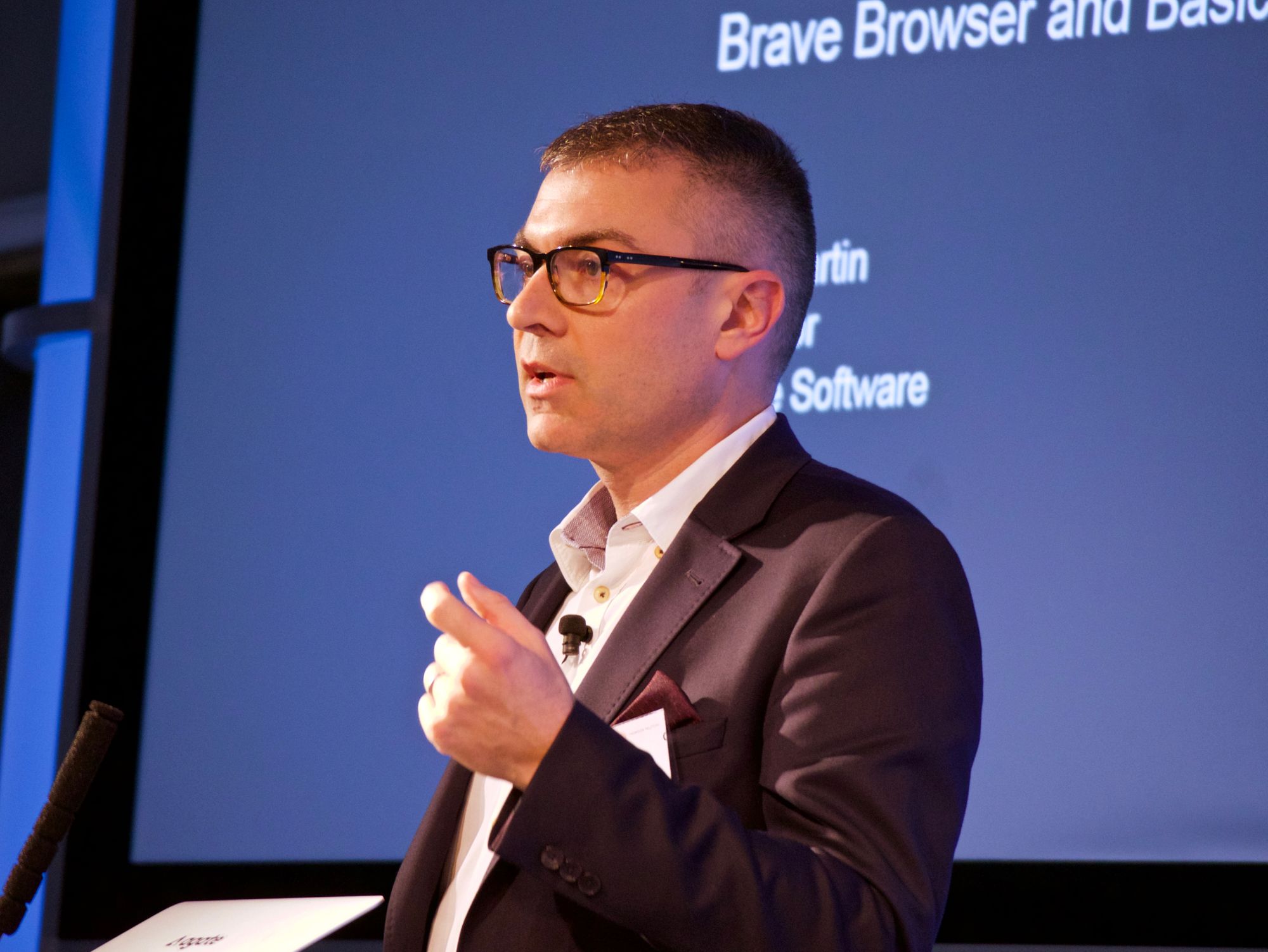
Brave is a new browser, with a built-in wallet that gives you control over your data. The digital advertising ecosystem is dominated by 50 companies - with two of them taking 80% of the spend. That cannot last.
In Brave, if you opt into an ad, you earn tokens based on your attention. We are giving the average user the opportunity to earn small amounts - and pay them back to the publishers. You can use the tokens in a patronage model, or through subscription content.
Right now they have 5.5m monthly active users. They're hoping to reach 10m to 12m by the summer. They're looking to partner with publisher and advertisers to help build that.
Q&A
Mark Little: People are demanding multiple sources of information: they're used to Spotify. Spotify for news is a shitty idea, but 6 or 7 subscriptions is too much. And try getting rid of one of those… We shouldn't be in the identity management business, but we should allow different levels of relastionship, with different levels of knowledge of the user's data.
Jessica Best: We don't need the user's data. All we need is enough to sign-up the subscription, because we don't run ads.
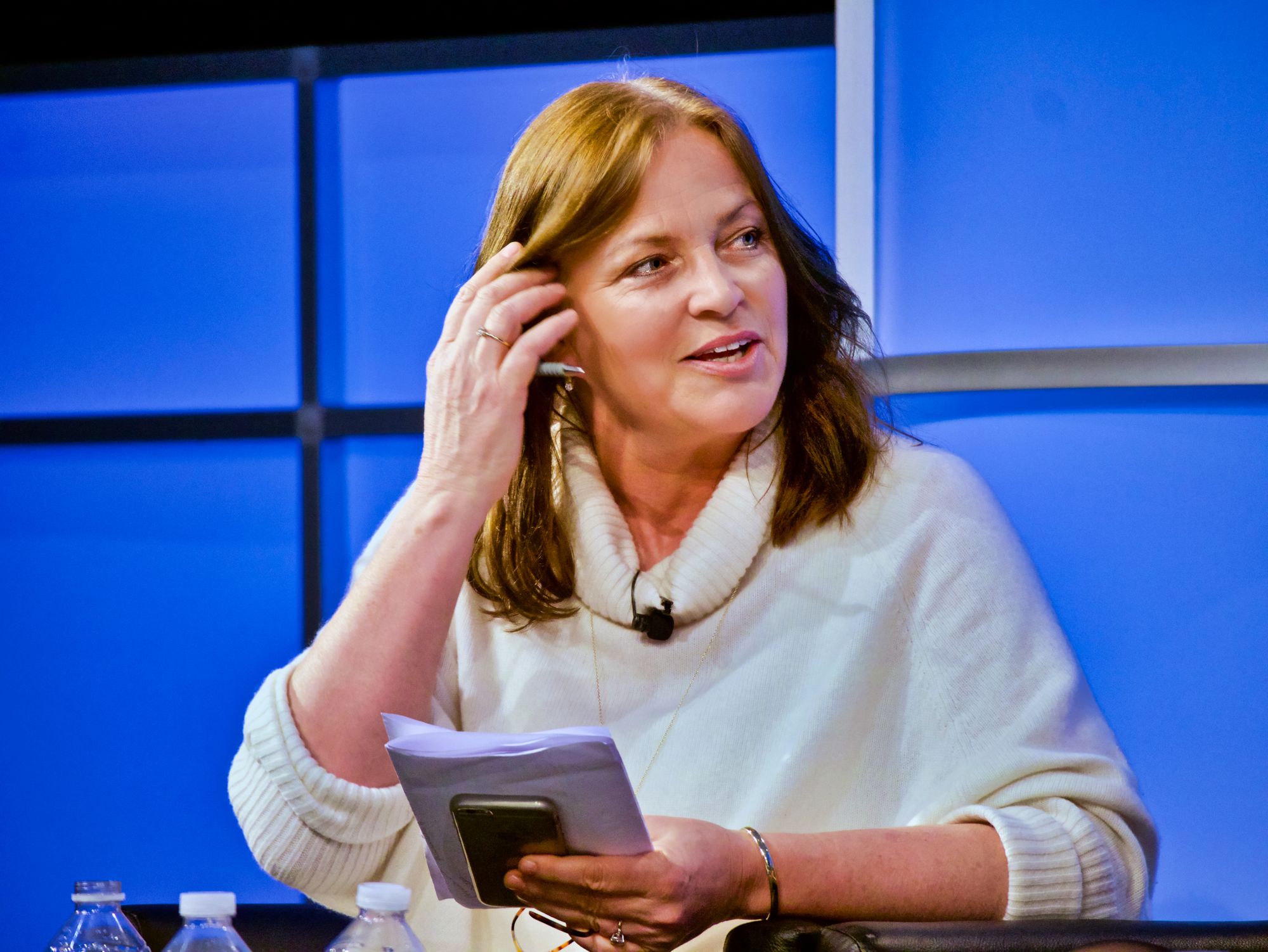

Q. What has micropayments never happened?
Dominic Young: Nobody has ever done it well. The sign-up process can be a massive barrier, if it needs to happen on every site. Constant approvals will make people reject the process. If we can make this work - and we are - local publishers can go back to reporting on local councils and local football, rather tha chasing eyeballs.
Q. How are the big publishers reacting to all this experimentation?
ML: It has to be additive. You can't do that - the CIO will kill the conversation stone dead. Work out strategies - like owning the morning commutes. Don't ask for space on existing screens. And don't be small. There's a lot more permission for failure now.
Sign up for e-mail updates
Join the newsletter to receive the latest posts in your inbox.


